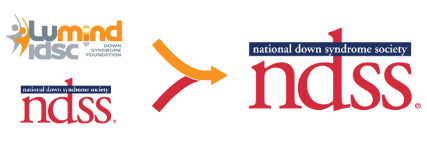Project will empower advocates, enhance research for people at high risk of Alzheimer’s disease who have Down syndrome
Washington, D.C. (Aug. 13, 2024) – The Alliance for Aging Research and its partners LuMind IDSC and the National Down Syndrome Society (NDSS) have been approved for a $250,000 funding award through the Eugene Washington PCORI Engagement Award Program, an initiative of the Patient-Centered Outcomes Research Institute (PCORI). The funds will support their project, “Pathways to Parity: Empowering Advocates for Alzheimer’s Research in People with Down Syndrome.”
“At the Alliance, we strive to be a place where inclusion lives, and diverse voices are valued. Our goal is to empower patient advocate populations and build meaningful relationships with researchers and providers who commit to establishing meaningful, diverse patient outcomes research engagement opportunities for patients and family caregivers within their work,” said Beth Mathews-Bradshaw, Vice President of Patient Engagement and Research at the Alliance for Aging Research. “We appreciate the opportunity to partner with LuMind IDSC and NDSS to address improving health outcomes for people with intellectual and developmental disabilities.”
The three organizations are partnering to create, conduct, and evaluate a training in clinical research and comparative clinical effectiveness research (CER) for individuals with Down syndrome and their family member care partners.
“Empowering families through research-related information is a core component of our mission,” said Hampus Hillerstrom, President and CEO of LuMind IDSC. “We are honored to have this opportunity to provide evidence-based training to increase community literacy around Alzheimer’s research, and to be doing this work with such seasoned collaborators as Alliance for Aging Research and NDSS.”
The Pathways to Parity project aims to empower researchers, providers, patients, and family caregivers to collaborate on patient-centered CER as it relates to Alzheimer’s disease in the Down syndrome population.
“NDSS is committed to improving the health and wellbeing of individuals with Down syndrome, and one of the best ways we can empower our community in the fight against Alzheimer’s disease is through education and advocacy,” said NDSS President & CEO Kandi Pickard. “Collaboration between national groups bolsters the effort of those who advocate to improve the lives of our loved ones and future generations of individuals with Down syndrome.”
Over the course of the award period Pathways to Parity will develop and host two virtual trainings to educate approximately 80 participants on:
- The basics of CER research: what it is, how it works, and how it is relevant to this population
- The purpose and value of patient-centered outcomes research (PCOR)
- Strategies for including the Down syndrome population in research questions that are important to this population.
According to Greg Martin, PCORI’s Chief of Engagement, Dissemination and Implementation, “This project was selected for Engagement Award funding because it will build a community equipped to engage as partners in patient-centered comparative clinical effectiveness research. We look forward to working with the Alliance for Aging Research throughout the course of their 2-year project.”
PCORI is an independent, nonprofit organization authorized by Congress with a mission to fund patient-centered comparative clinical effectiveness research that provides patients, their caregivers and clinicians with the evidence-based information they need to make better informed health and health care decisions.
The Alliance’s “Pathways to Parity: Empowering Advocates for Alzheimer’s Research in People with Down Syndrome” project and the other projects approved for funding through the PCORI Engagement Award Program were selected as part of a highly competitive review process in which applications were assessed for their ability to meet PCORI’s engagement goals and objectives, as well as program criteria. For more information about PCORI’s funding to support engagement efforts, visit http://www.pcori.org/content/eugene-washington-pcori-engagement-awards/.
The Alliance for Aging Research is dedicated to changing the narrative to achieve healthy aging and equitable access to care. We strive for a culture that embraces healthy aging as a greater good and values science and investments to advance dignity, independence, and equity.
Founded by families in 2004, the LuMind IDSC Down Syndrome Foundation is a not-for-profit organization that serves as a bridge between the Down syndrome community and the research community. LuMind IDSC accelerates research to increase the availability of therapeutic, diagnostic, and medical care options for people with Down syndrome and empowers families through education, connections, and support.
Founded in 1979, the National Down Syndrome Society (NDSS) empowers individuals with Down syndrome and their families by driving policy change, providing resources, engaging with local communities, and shifting public perceptions. NDSS engages grassroots advocates at the federal, state, and local levels and creates resources to support individuals with Down syndrome, their families, and caregivers across the lifespan on topics including education, employment, health and wellness, and aging. NDSS founded the National Buddy Walk® Program in 1995 and hosts community engagement events throughout the country including the New York City Buddy Walk® and Times Square Video, the NDSS Adult Summit, and the Down Syndrome Advocacy Conference. Visit www.ndss.org to learn more.
##
To interview someone from the Alliance for Aging Research Health, email Katie Riley at [email protected]. To interview someone from LuMind, email Kate O’Neill at [email protected]. To interview someone from NDSS, email Michelle Sagan at [email protected].
